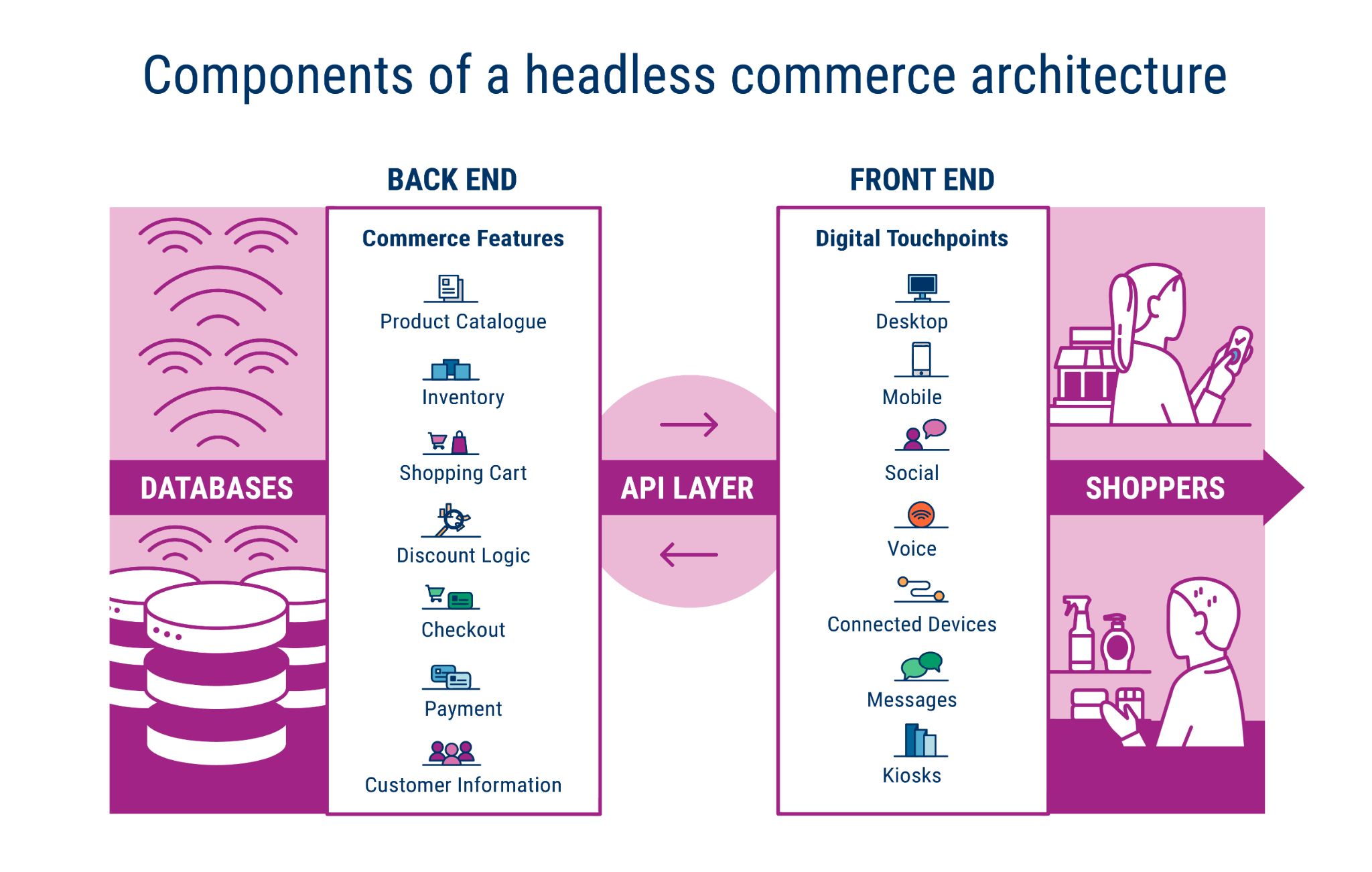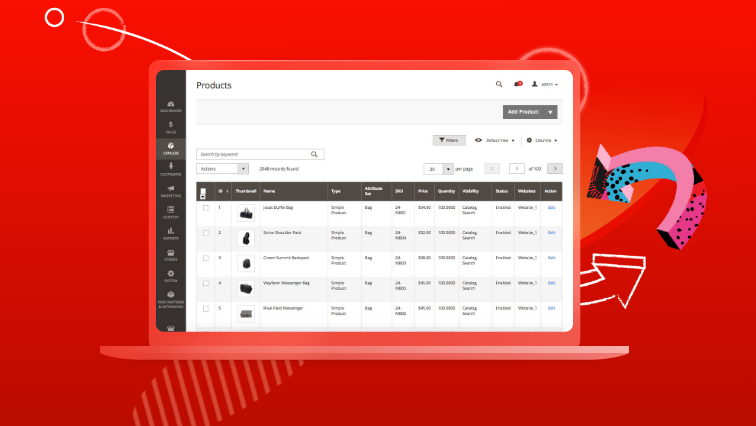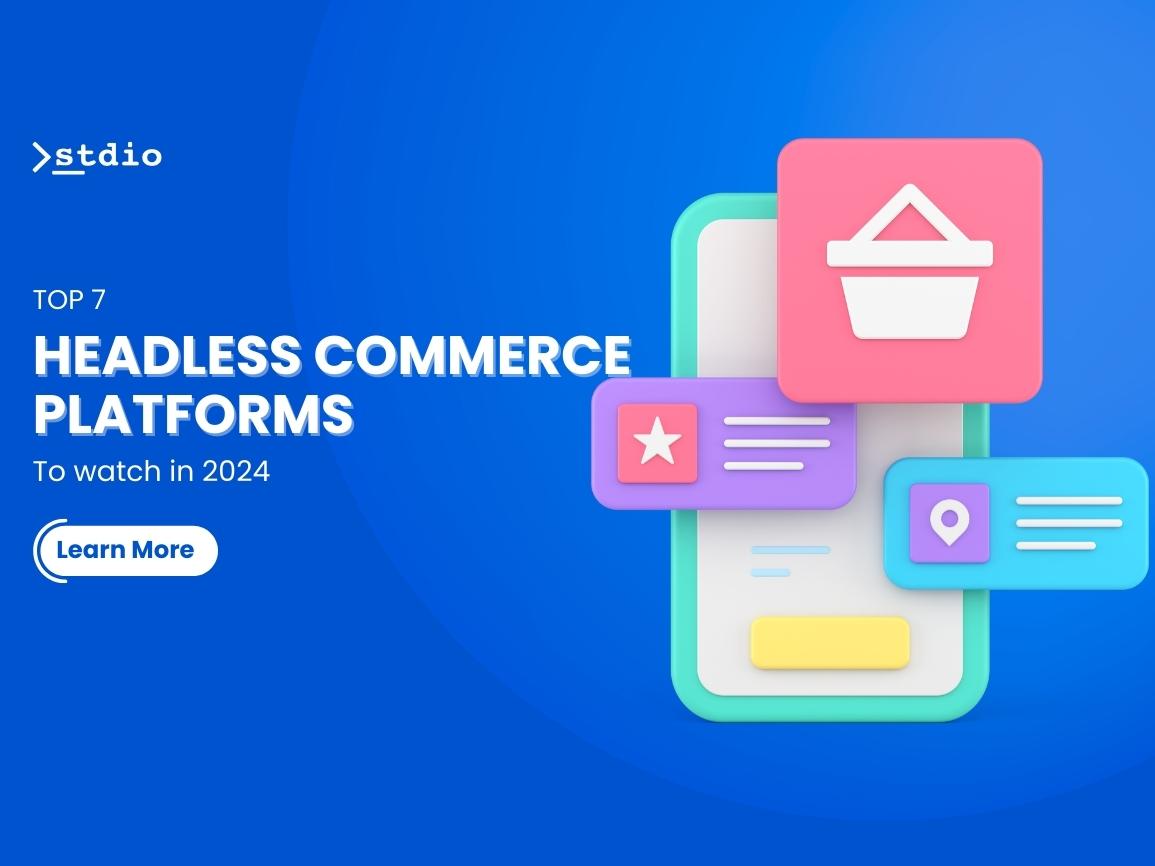Discover the power of Headless Commerce – a cutting-edge solution revolutionizing the eCommerce industry. Enhance customer experiences, gain flexibility, and improve agility. Embrace the future of eCommerce today!
In this blog, we will delve into the top headless platforms available today. Each platform boasts unique features and capabilities that empower businesses to scale and thrive. Join us as we explore these remarkable solutions and their potential to drive growth.
What is Headless Commerce?
Before we dive into the main topic, let’s understand the concept of headless commerce. It refers to an architecture that separates the frontend and backend layers of an eCommerce website or application. This allows the frontend, including the user interface and customer experience, to function independently from the backend eCommerce functionality.
By using APIs to communicate with the backend, the headless architecture provides businesses with unmatched flexibility and scalability. It empowers businesses to deliver highly personalized and exceptional customer experiences. In essence, headless commerce transforms how businesses engage with customers, enabling them to provide tailored and memorable experiences.
What is a Headless Commerce Platform?
A headless commerce platform operates with a decoupled system, separating the front-end and back-end of a website. This facilitates seamless communication between systems using APIs for faster and more responsive processes.
Headless commerce emerged as a response to challenges associated with monolithic platforms. These challenges include high risk when implementing changes, repetitive tasks, and slow performance. Headless commerce platforms drive technological implementations for business benefits.
Customers consume content through multiple touchpoints. Headless commerce has become the preferred solution to overcome challenges posed by decoupled systems.
With the growing popularity of the headless system, choosing the right platform for a seamless headless experience remains a question.

Key Considerations for Choosing a Headless Commerce Platform
Capabilities for integration
Integration capabilities are crucial for headless commerce platforms, as they enable a seamless and efficient experience for customers and businesses. Effective APIs ensure a smooth storefront experience and handle business operations like order and inventory management. This synergy between the front-end and back-end guarantees an improved overall experience.
Headless commerce platforms simplify integration of third-party analytics tools for tracking customer behavior, analyzing sales data, and making data-driven decisions. By integrating with popular payment gateways and shipping providers, businesses can offer diverse options to customers.
Capabilities for Content Modeling
A robust content modeling system is a vital component of headless platforms. It enables businesses to effectively structure and organize their content, ensuring consistency and easy accessibility across all channels and devices. This results in an enhanced user experience, improved SEO, increased customer engagement, higher conversion rates, and greater customer loyalty. Therefore, when choosing a headless commerce platform, it is crucial to prioritize a strong content modeling system.
Integrating a Payment Gateway
When choosing the best headless commerce platform, it’s essential to consider the integration of payment gateways. This crucial feature ensures a seamless payment experience for customers, while also streamlining order processing and management.
By incorporating multiple payment gateways, these platforms empower businesses to offer a wide range of payment options, enhancing the overall shopping experience. As a result, businesses can accept various forms of payment, including credit cards, debit cards, and mobile wallets, all while maintaining secure payment processing and order management without manual intervention.

Architecture for Enhancing Workflows
A robust store relies on headless workflow enhancements, which improve the speed, accuracy, and efficiency of eCommerce workflows. Implementing these enhancements automates processes, reduces manual effort, and minimizes errors and delays. By eliminating repetitive tasks, businesses can allocate resources effectively, reducing costs and increasing productivity. Workflow enhancements also enable continuous optimization, helping businesses stay competitive and responsive to market trends and customer preferences. Stay ahead of the curve with streamlined processes!
Customer Support
Customer support is crucial for any headless platform. It resolves technical issues, enhances efficiency, and delivers exceptional customer experiences. Top-notch platforms prioritize support, offering phone, email, and chat channels for prompt assistance. Round-the-clock support is essential to minimize downtime and revenue loss. A responsive team ensures seamless eCommerce operations, prioritizing customer satisfaction.
Security
When selecting a headless Commerce platform, giving top priority to security is of utmost importance. It is critical to choose a platform that implements strong security measures to protect customer data and financial transactions. By doing so, you can uphold customer trust and safeguard your eCommerce business operations from potential cyber threats.
Adopting an API-First Approach
In the current eCommerce landscape, adopting an API-first approach is crucial, especially in headless commerce architecture. By prioritizing API design and development, businesses can create a flexible and scalable system that enables seamless communication and integration between diverse software systems. This not only improves functionality but also enhances efficiency and adaptability in the ever-changing world of eCommerce.
Expense
When choosing an eCommerce platform, it’s important to consider that costs can vary significantly. To make the right choice, compare prices and find a platform that fits your budget. This includes both the initial investment and long-term expenses like hosting, maintenance, and upgrades. By assessing these factors, you can select a platform that offers the best value for your business. Choosing an affordable and sustainable eCommerce platform can maximize your ROI and lead to long-term success.
Top 7 Headless Commerce Platforms to Watch in

Shopify Plus
Shopify Plus is a leading ecommerce platform that empowers businesses with robust features and tools for effective online store management. Its headless commerce functionality separates front-end design from back-end infrastructure, enabling seamless publication across various channels. This transforms any device into a platform that showcases their brand. With complete creative control, businesses can curate a cohesive customer experience across all touchpoints.
Custom storefronts can be crafted using business software and content management systems, delivering content through diverse devices. Shopify Plus integrates seamlessly with ERP, PIM, CRM, CMS, and design frameworks, facilitating efficient inventory management and tailored storefront customization. Valuable analytics insights and integration with major marketplaces and third-party apps are readily available. Shopify Plus starts at $2,000 per month and offers a dedicated account manager, advanced security features, and enterprise-level tools and support. Schedule a demo to explore the platform’s capabilities, including Shopify development services.
BigCommerce
BigCommerce is a popular eCommerce platform that empowers businesses with powerful tools to manage online stores. Its user-friendly content management system and intuitive editor allow businesses to create customized digital storefronts effortlessly. The headless commerce functionality enables seamless product launches, feature integration, and real-time optimization without extensive coding knowledge.
What sets BigCommerce apart is its open API and comprehensive range of software development kits (SDKs), making it ideal for businesses seeking an integrated eCommerce experience. Leveraging front-end frameworks, businesses can tailor customer-facing aspects, while intelligent storefront search, A/B testing, and machine learning-driven recommendations optimize performance across channels.
With BigCommerce’s digital experience platforms, businesses can enhance customer engagement through dynamic and personalized experiences on any device or channel. The platform offers robust features for managing customer relationships, orders, product catalogs, pricing, and promotions. Real-time analytics and tracking capabilities enable data-driven decision-making, leading to improved online stores and increased revenue growth.
Magento/Adobe Commerce
Magento Commerce is a robust eCommerce platform that empowers developers to create tailored applications. With its highly customizable nature, the platform seamlessly integrates new features and enables experimentation without disrupting existing systems.
One standout feature is Magento’s comprehensive inventory management system. It efficiently allocates inventory to stores at the right time and provides accurate tracking across multiple locations, including warehouses and drop shippers. Valuable insights can be gained through the analytics dashboard, visualizing essential data points for informed decision-making.
For prompt issue resolution, Magento Commerce offers customer support through a ticket-based system. Pricing details are available upon request, and the platform’s versatility and scalability make it ideal for businesses of all sizes.

Salesforce Commerce Cloud
Salesforce Commerce Cloud is a powerful headless commerce platform that enables businesses to create highly customizable front-end and back-end experiences using configurable APIs. It seamlessly integrates with Salesforce’s content management system, leveraging data from existing databases to deliver personalized customer interactions.
While Salesforce Commerce Cloud offers a wide range of tools and integrations, it may have a steeper learning curve for beginners compared to user-friendly options like Shopify. However, for businesses with dedicated development teams, investing time in mastering the multiple APIs can yield significant benefits.
Key features include advanced order management, extensive integration capabilities, support for both B2C and B2B eCommerce, and seamless connection of digital stores with physical touchpoints through the innovative “endless aisle” feature. Additionally, the platform ensures mobile optimization for enhanced customer experiences.
For pricing details, contact Salesforce Commerce Cloud directly.
Commercetools
Commercetools is an omnichannel eCommerce platform that provides a flexible foundation for eCommerce architecture. Leveraging headless eCommerce technology, it enables retailers to create engaging customer experiences across multiple channels and future-proof their business. The cloud-based point-of-sale functionality is easy to deploy, and the API approach empowers retailers to build brand awareness across all touchpoints.
One standout feature is the fully-enabled API platform, which manages data flow and user interaction between front-end clients and back-end ERP systems. The APIs cover all necessary functionalities for running an eCommerce business, making it user-friendly for businesses of all sizes. It offers features for tracking inventory, managing returns, and multi-store management, streamlining operations and ensuring timely product delivery.
Commercetools integrates smoothly with popular tools like Contentstack, CyberSource, Frontastic, and DXPs, as well as front-end CMS systems like Bloomreach and Adobe Experience Cloud. This allows businesses to customize and optimize their eCommerce platform to meet unique needs.
Support is available 24/7 via live chat or email, ensuring businesses have access to the help they need. Commercetools offers flexible pricing options, allowing businesses to choose and pay for the features they need, making it a cost-effective eCommerce solution.

Swell
Swell, a headless commerce platform, enhances sales and user experience for B2B and B2C businesses. It offers powerful features like built-in subscriptions, wholesale and marketplace functionality, and customizable options for unique business models.
With a user-friendly site builder, Swell provides stylish themes and effortless customization, no coding required. Boost conversions with promotional features such as discounts, cross-selling, and custom coupons.
Swell seamlessly integrates with popular payment and marketing platforms like Stripe, PayPal, and Mailchimp. Rest assured, your online business is protected by Swell’s multi-layered, encrypted security measures.
While Swell excels in many areas, customer support and documentation could be improved, affecting platform navigation.
In summary, Swell is a feature-packed headless commerce platform. It offers a free option with limited functionality, empowering businesses with effective marketing tools to enhance conversion rates. The Standard plan is priced at $299 per month, while the Enterprise plan for larger businesses costs $2000 per month.
OroCommerce
OroCommerce is a versatile eCommerce platform for B2B businesses. It offers extensive customization to meet various B2B, B2B2C, B2B2B, and B2C needs.
One notable feature is its robust inventory management, supporting efficient control across multiple websites and warehouses. You can personalize catalogs and adjust pricing to cater to your customers’ unique needs.
OroCommerce caters to both headless and traditional eCommerce, effectively reaching web and mobile audiences. It follows an open-source philosophy and benefits from continuous improvement by a dedicated community.
Another advantage is its seamless integration with popular CRM and ERP apps like Salesforce and SAP, streamlining business processes.
Pricing details available upon request. OroCommerce offers customizable features tailored to your specific business requirements.
What lies ahead?
Determining which option is superior is challenging since each business has distinct requirements to meet. Therefore, it is advisable to carefully evaluate the possibilities offered by each option for your specific business needs. Headless commerce grants businesses enhanced flexibility on the technical front. It is crucial to collaborate with reputable headless commerce service providers to craft revenue-driving experiences that align with your goals.
Remember to connect with STDIO ASIA for assistance in developing a robust Headless commerce app.



Leave a Reply